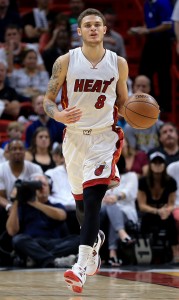The Magic won’t host their summer league in 2018, according to Josh Robbins of The Orlando Sentinel. Instead, Orlando will join most of the rest of the league with an entry in the Las Vegas Summer League.
The Orlando Pro Summer League was virtually an annual event, being held 14 times since 2002. It provided the first showcase of young talent in early July, followed by leagues in Utah and Las Vegas later in the month. The Orlando league was always closed to the public, Robbins notes, so the move won’t impact Central Florida basketball fans.
The Magic brought in a new management team earlier this year with Jeff Weltman as president of basketball operations and John Hammond as GM, and they decided to go in a different direction.
“The pendulum is swinging towards teams playing in Vegas,” Weltman said. “It’s a level of competition and a level of exposure when more or less every team in the league is there and you’re playing in front of 20,000 people as opposed to playing in a gym with a few hundred people. So it better prepares you for what NBA life is really about with the crowds, the pressure, the travel — a lot of what you’re going to have to confront. Obviously, it’s not a true test of an NBA season, but it’s a little taste.”
The Orlando league had only eight teams this year with the Hornets, Mavericks, Pistons, Pacers, Heat, Knicks and Thunder joining the host Magic. Twenty-four teams were in Las Vegas, with three preliminary games followed by a single-elimination playoff to determine a champion, and the NBA hopes to eventually get all 30 teams involved.
“We want to do what’s right for the team, for our players,” Weltman said. “But that being said, when the large portion of the league is there [in Las Vegas], it does kind of create an environment where you want your young guys to be a part of what the league is about.”
